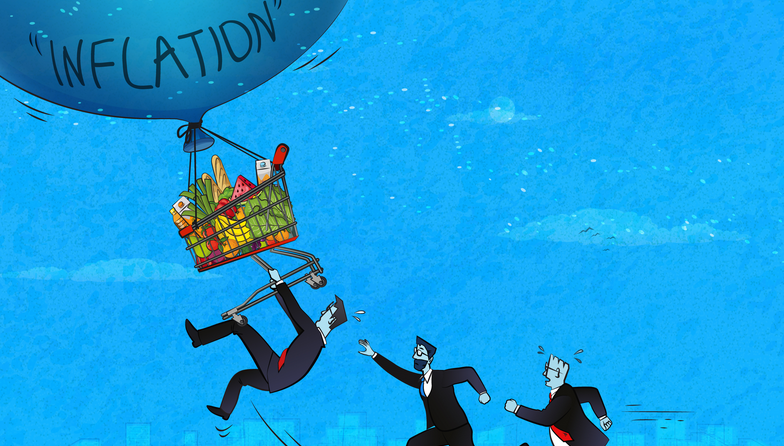Inflation: the silent tide that creeps into every corner of our financial lives, often unnoticed until it’s too late. It’s the invisible hand affecting the cost of living, savings, investments, and even the dreams we aspire to. In this blog post, we’ll explore the pervasive impact of inflation on your finances and how understanding and managing it can significantly impact your financial well-being.

What is Inflation?
Inflation is like a quiet, persistent thief that silently steals the value of your hard-earned money. As prices rise, the same amount of money buys less, and it’s a reality that impacts everyone, from individuals to businesses and even governments. When the cost of goods and services increases, your purchasing power decreases, and you need more money to buy the same things you once could with less. This vicious cycle can have a profound impact on your daily life and long-term financial goals.
The effects of inflation ripple through all aspects of your financial landscape. For instance, if you’re saving for a future goal like buying a house, sending your children to college, or retiring comfortably, inflation can significantly impede your progress. The money you save now might not be enough in the future to cover those costs due to the erosion of purchasing power caused by inflation. Moreover, if your income doesn’t keep pace with inflation, maintaining your current lifestyle becomes increasingly challenging.
The Power of Eroded Purchasing Power
The insidious aspect of price increases is its ability to erode your purchasing power stealthily. Imagine your favorite cup of coffee costing twice as much in just a few years. This reduction in purchasing power affects your budget, your ability to save, and ultimately, your financial goals.
Rising Cost of Living
Inflation drives up the cost of living, impacting the price of essentials such as housing, groceries, healthcare, and education. As prices rise, you need to allocate a larger portion of your income to cover basic needs, leaving less for savings or discretionary spending. This constant juggling act makes financial planning and budgeting an even more critical aspect of managing your finances in an inflationary environment.
Investments: The Inflation Dilemma
Inflation’s impact on investments is a double-edged sword. On one side, it diminishes the real returns on traditional low-risk investments like savings accounts, bonds, and online casinos. On the other hand, investments in assets like stocks or real estate can act as a hedge against inflation, potentially providing returns that outpace the rate of rising prices.
Wage Stagnation and Income Inequality
When inflation outpaces wage growth, it leads to a decline in real wages. Many find their incomes insufficient to keep up with the rising cost of living, which can perpetuate income inequality and limit financial progress for a significant portion of the population.
Strategies to Mitigate Inflation’s Impact
Understanding and preparing for inflation’s impact is key to protecting your financial future. Diversifying your investments, considering inflation-protected securities, and regularly reviewing your budget are some strategies to help mitigate the effects of inflation.
Future-proofing Your Finances
In an era where economic landscapes can change rapidly, understanding the dynamics of inflation and adapting your financial strategy accordingly is essential. By keeping a keen eye on economic indicators and maintaining financial flexibility, you can navigate the ever-changing tides of rising prices and emerge financially secure.
Conclusion
Inflation is no mere economic concept; it’s a force that shapes the very fabric of our financial lives. By understanding its mechanisms and taking proactive steps, you can not only safeguard your financial present but also lay a sturdy foundation for a prosperous future in an inflation-prone world.











